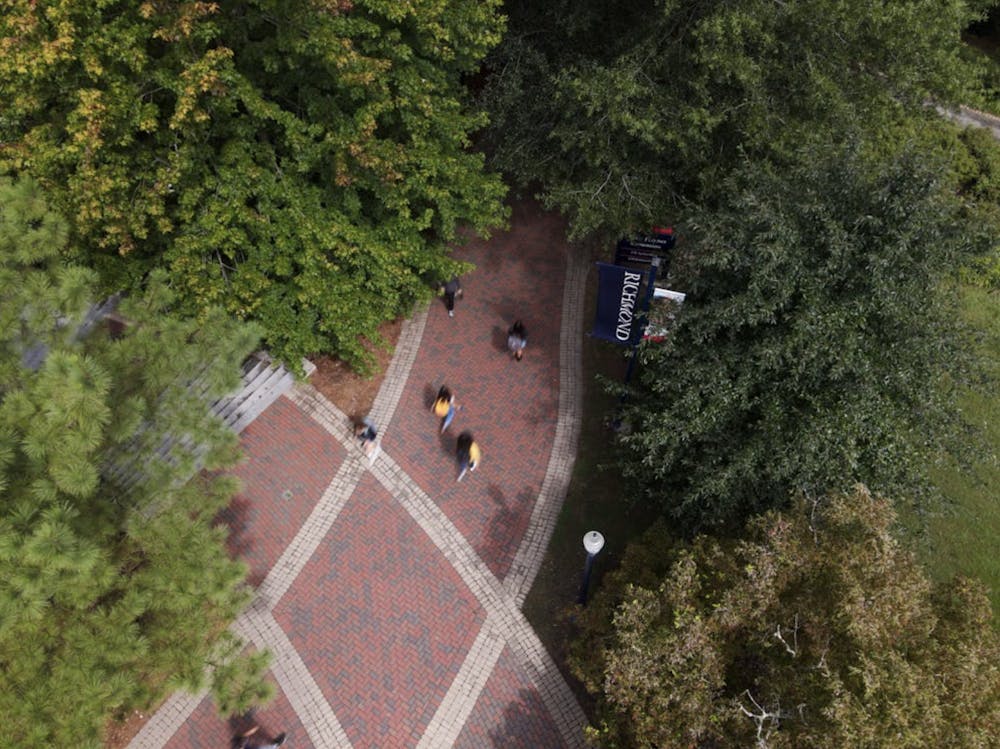The University of Richmond’s Class of 2028 marks the first group to be admitted since the U.S. Supreme Court banned affirmative action. The Office of Undergraduate Admission assures that the ruling did not impact their process, but some students remain skeptical about the fairness of race-blind admissions.
Of the 841 students the university admitted this admissions cycle, 33% are students of color with two-thirds of that total residing in the U.S. The student body has experienced an increase from a total of 27% students of color in the previous class, according to the UR Student Profile.
On June 29, 2023, the U.S. Supreme Court ended affirmative action, a policy that enabled institutes of higher learning to pursue diversity and equity through race-based admissions, after holding that race-conscious admissions programs at Harvard University and the University of North Carolina violated the Equal Protection Clause and Title VI of the Civil Rights Act of 1964.
Stephanie Dupaul, UR’s vice president for enrollment management, said the university has long practiced a comprehensive review that considers all aspects of a student’s application.
“UR admits academically talented students who bring diverse perspectives to our campus,” Dupaul said, “The Supreme Court decision did not change our commitment to the mission and the values of the University and to our students.”
Dupaul said the 2023 Supreme Court decision “made clear” that university admissions can consider “any aspect” of an application, including discussion of race and ethnicity.
“We have always read carefully and considered personal statements and recommendations and continue to value that direct insight provided by applicants to Richmond,” she said.
Dupaul said UR admissions’ recruitment efforts have expanded to reach students beyond the application in order to have a better understanding of students from all backgrounds.
“We are expanding the schools from which we recruit and working even more closely with partner organizations,” she said.
According to Dupaul, UR admission counselors visit over 800 high schools and 200 college fairs and host more than 400 on-campus events for future applicants.
Dupaul also said the admissions office had completed extensive training for a holistic application review process following the affirmative action decision.
“Multiple professionals review each application, and we use a committee-based process,” Dupaul said. “This significant investment of staff resources ensured diverse perspectives were engaged in the admission review process and helped result in the best entering class.”
Enjoy what you're reading?
Signup for our newsletter
Kevin Woodson, a law professor at the University of Richmond School of Law, said with the decision's flexibility, the admissions office can now read applicants’ personal essays to understand how race had affected their lives, rather than considering race directly. He noted that this new approach would “likely not” result in much change in diversity.
Woodson observed that universities have had varied interpretations of the Supreme Court ruling. He believes that some admissions departments may "toe the line" in hopes of maintaining their diversity and that others may hesitate in fear of being sued by anti-affirmative action groups, like Students for Fair Admissions.
Sophomore Adam Kasti, a political science and leadership studies major, believes that while the ruling “prevents” discrimination, the economic disparities that prevent some students from having the same access to opportunities as others are still going to be a “pervasive barrier.”
Kasti worries that students from "disadvantaged communities" will no longer have the same access to opportunities with admissions processes going race-blind.
"I want students to be considered based on their hard work, challenges overcome and belief in their ability to contribute to the university and global community," he said.
Kasti emphasized that fairness in admissions should extend beyond race-blind processes to include the removal of legacy preferences.
"With affirmative action being overturned, it is important to ensure the playing field is even," he said. "Students should be assessed equally on their merits, not given an unfair advantage based on legacy status or alumni connections."
Contact writer Katherine Nguyen at khue.nguyen@richmond.edu .
Support independent student media
You can make a tax-deductible donation by clicking the button below, which takes you to our secure PayPal account. The page is set up to receive contributions in whatever amount you designate. We look forward to using the money we raise to further our mission of providing honest and accurate information to students, faculty, staff, alumni and others in the general public.
Donate Now



